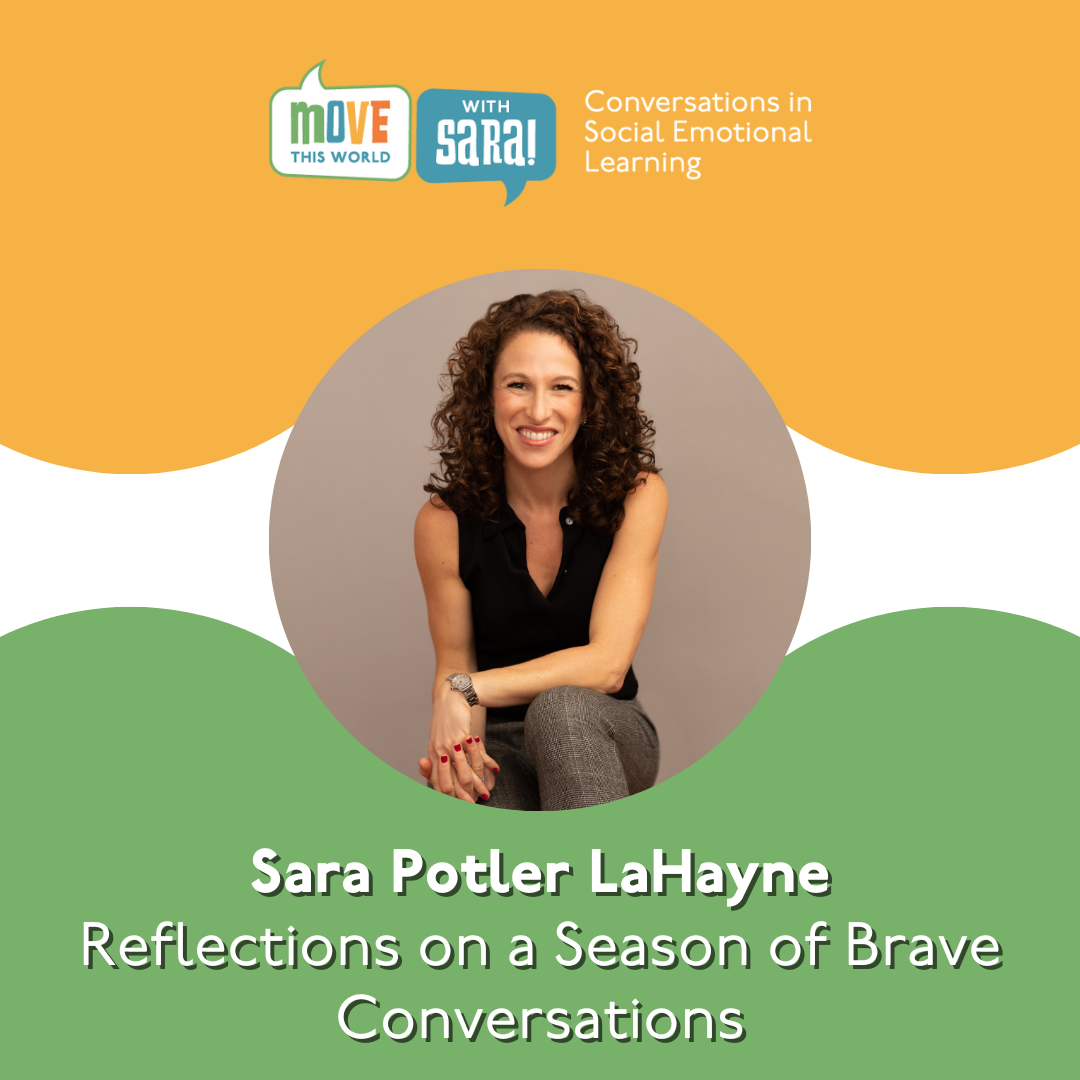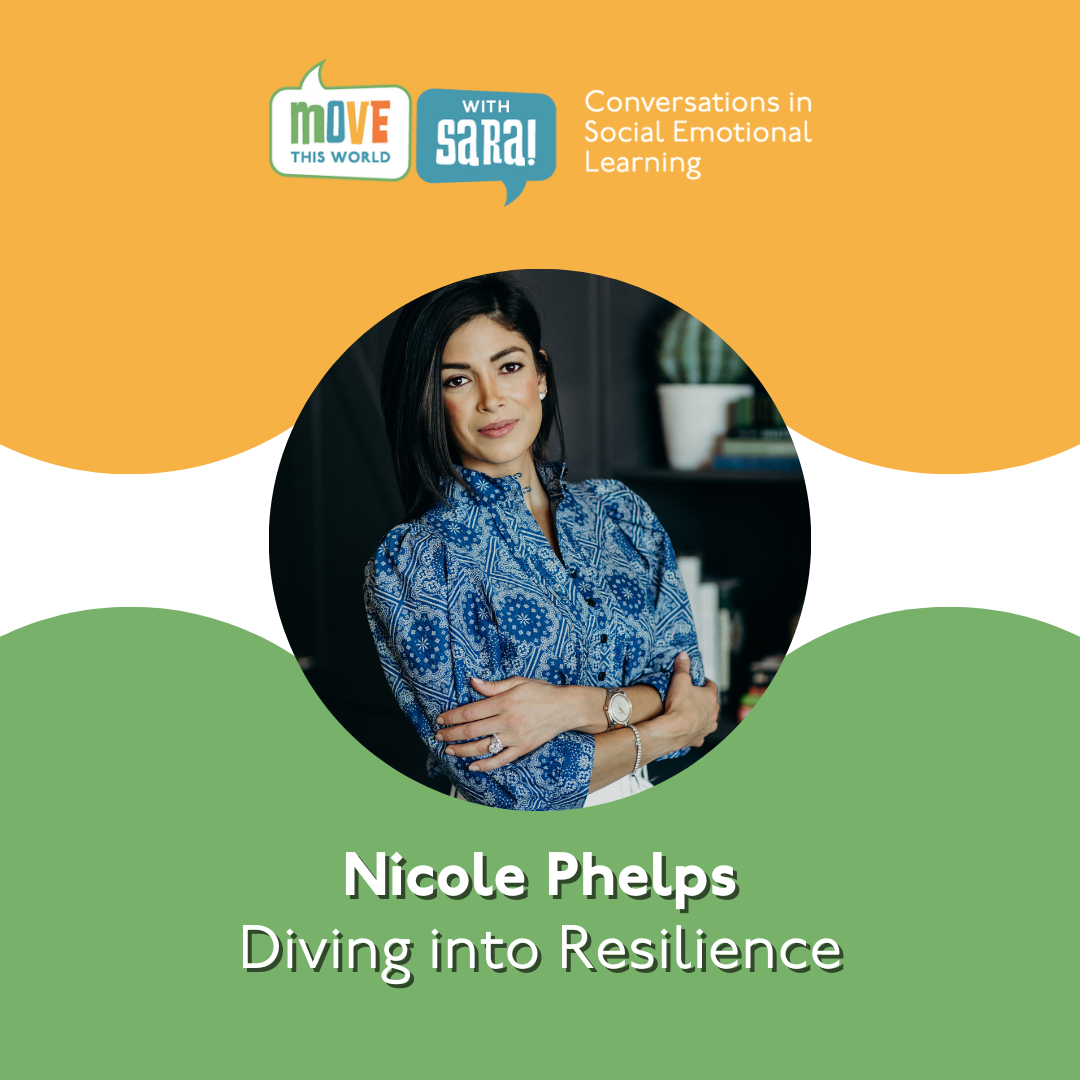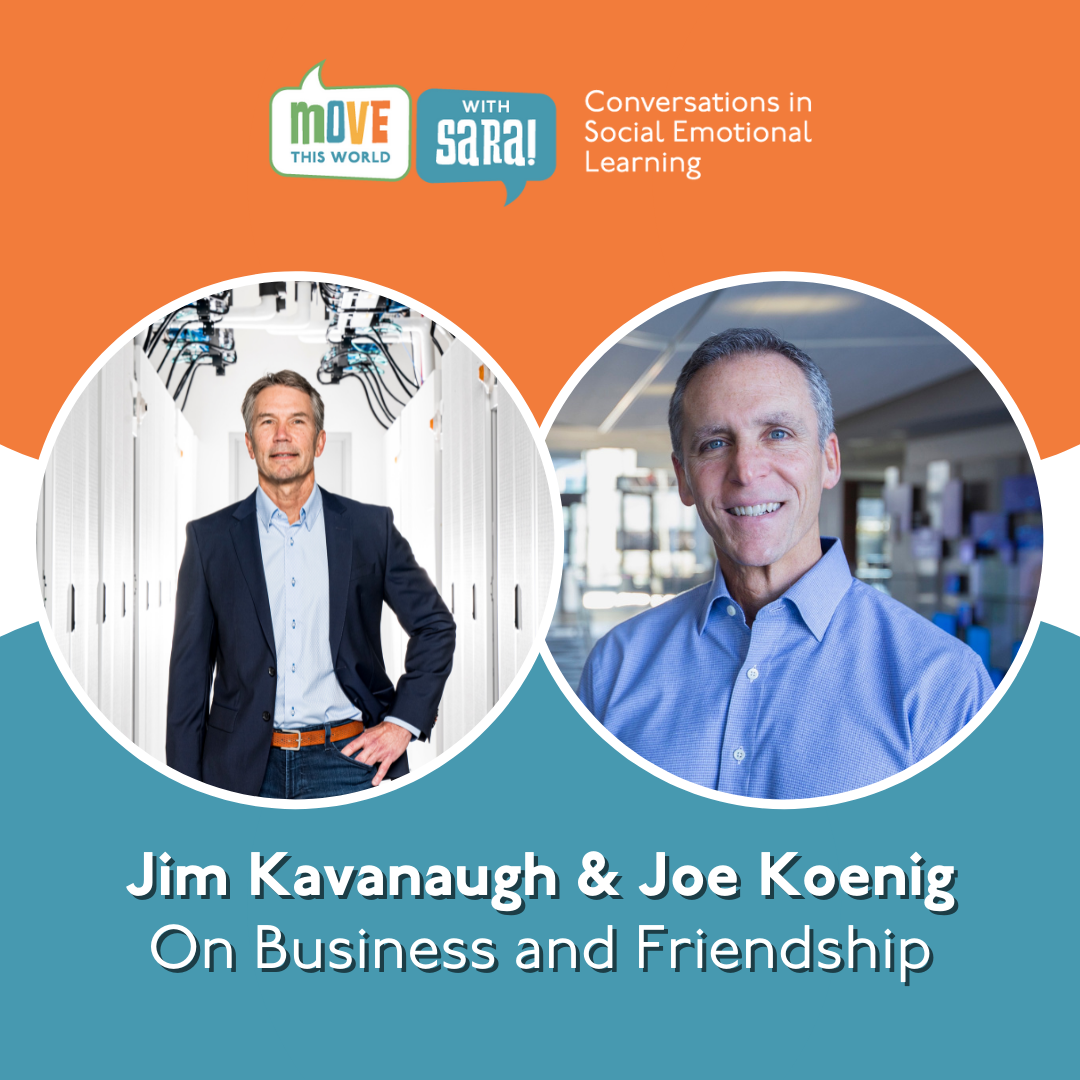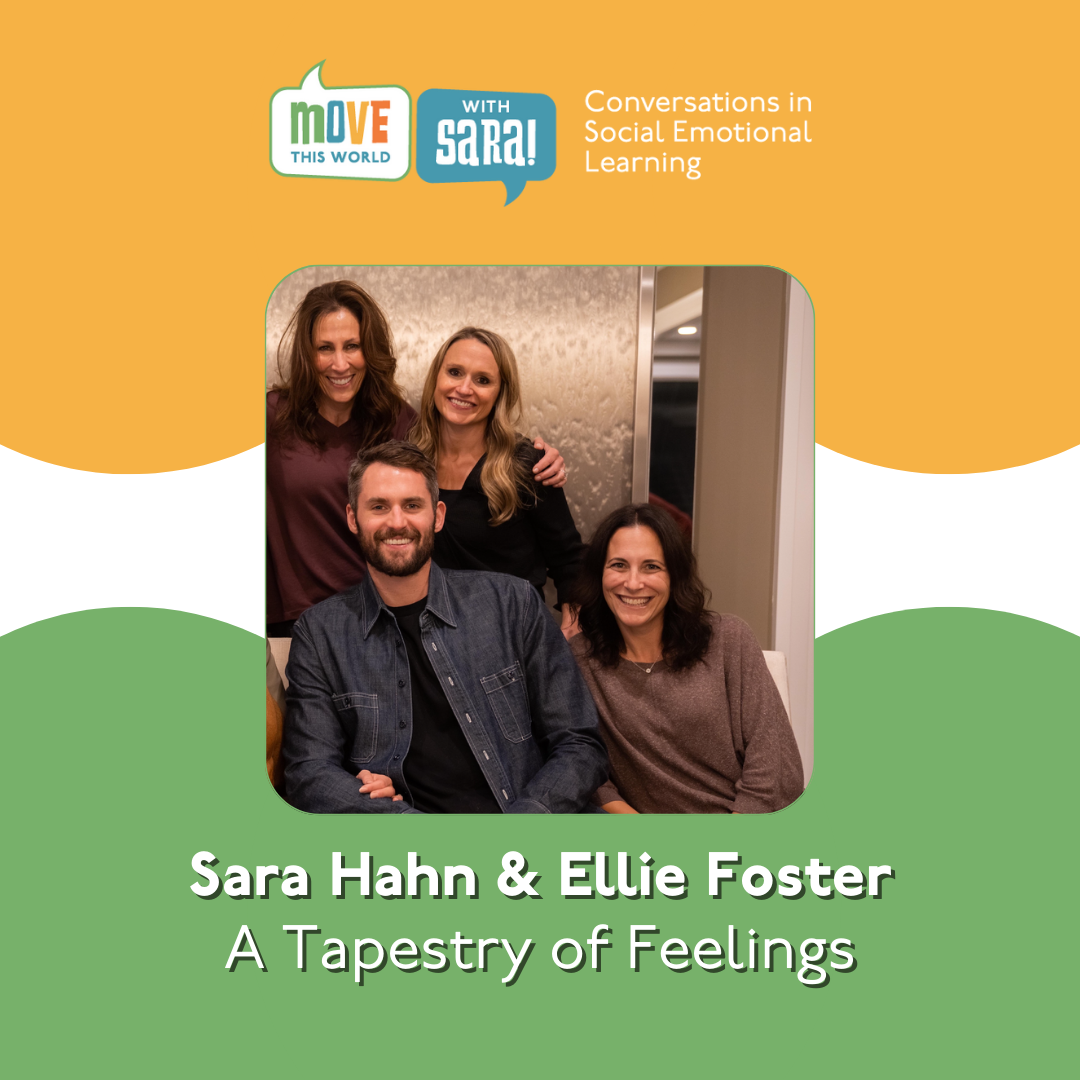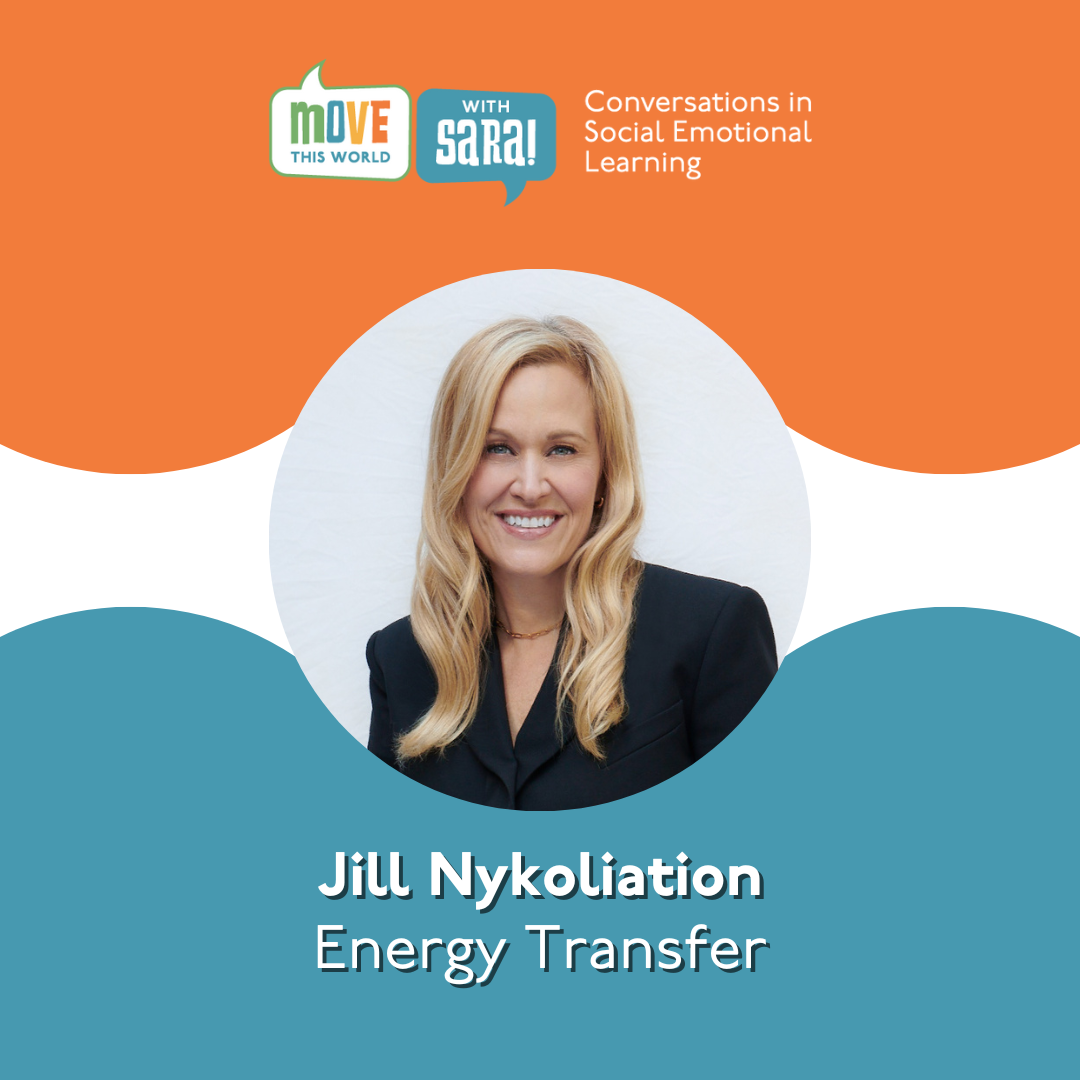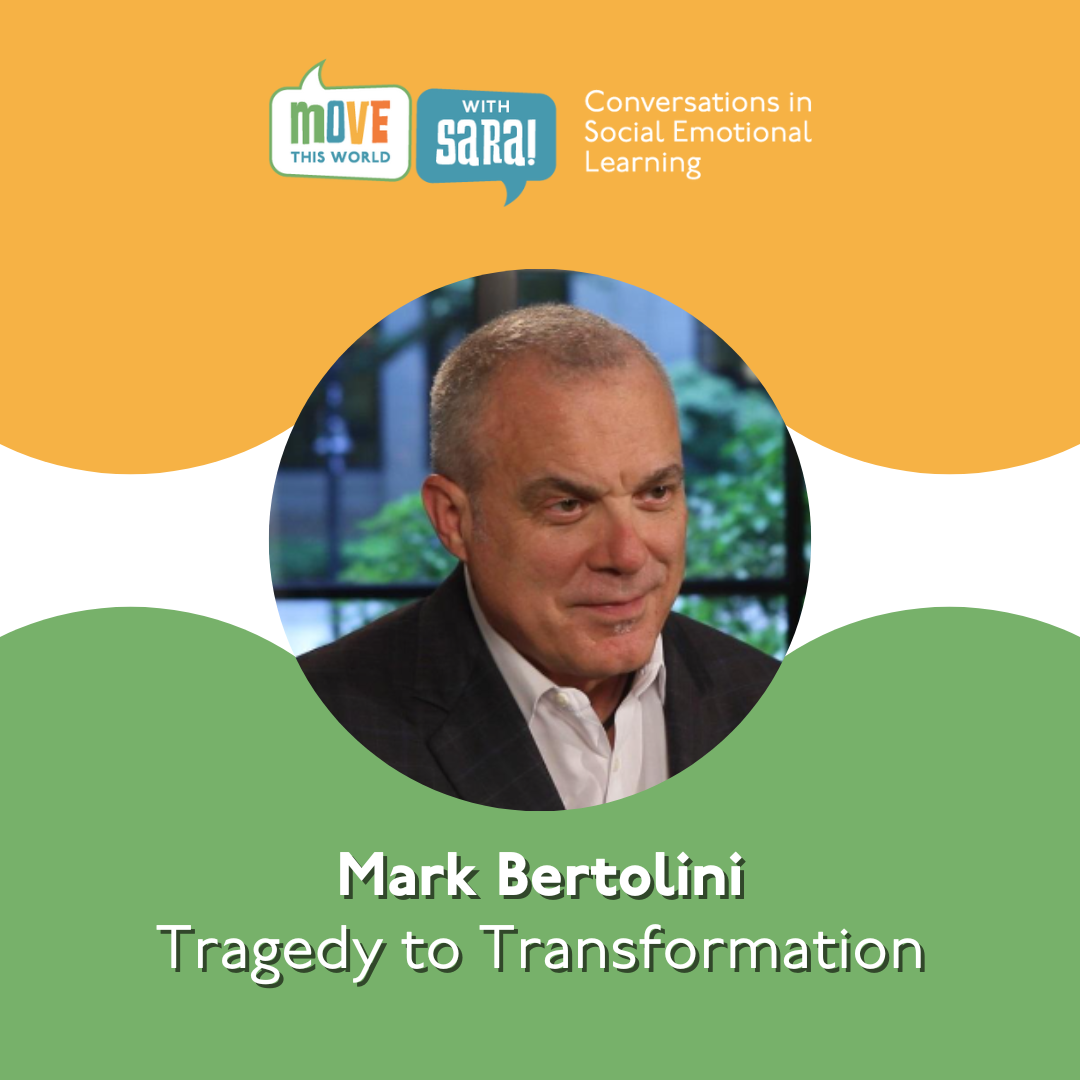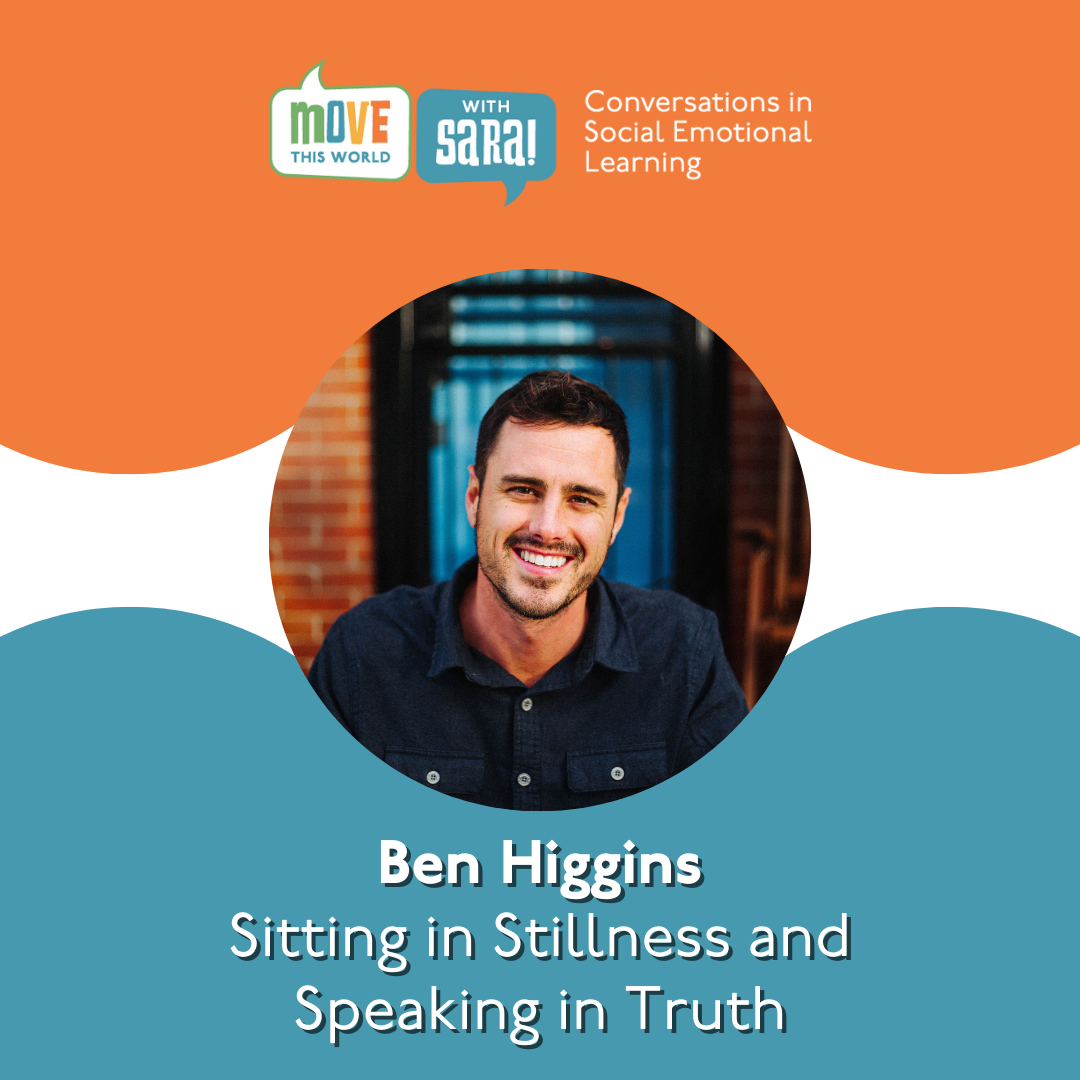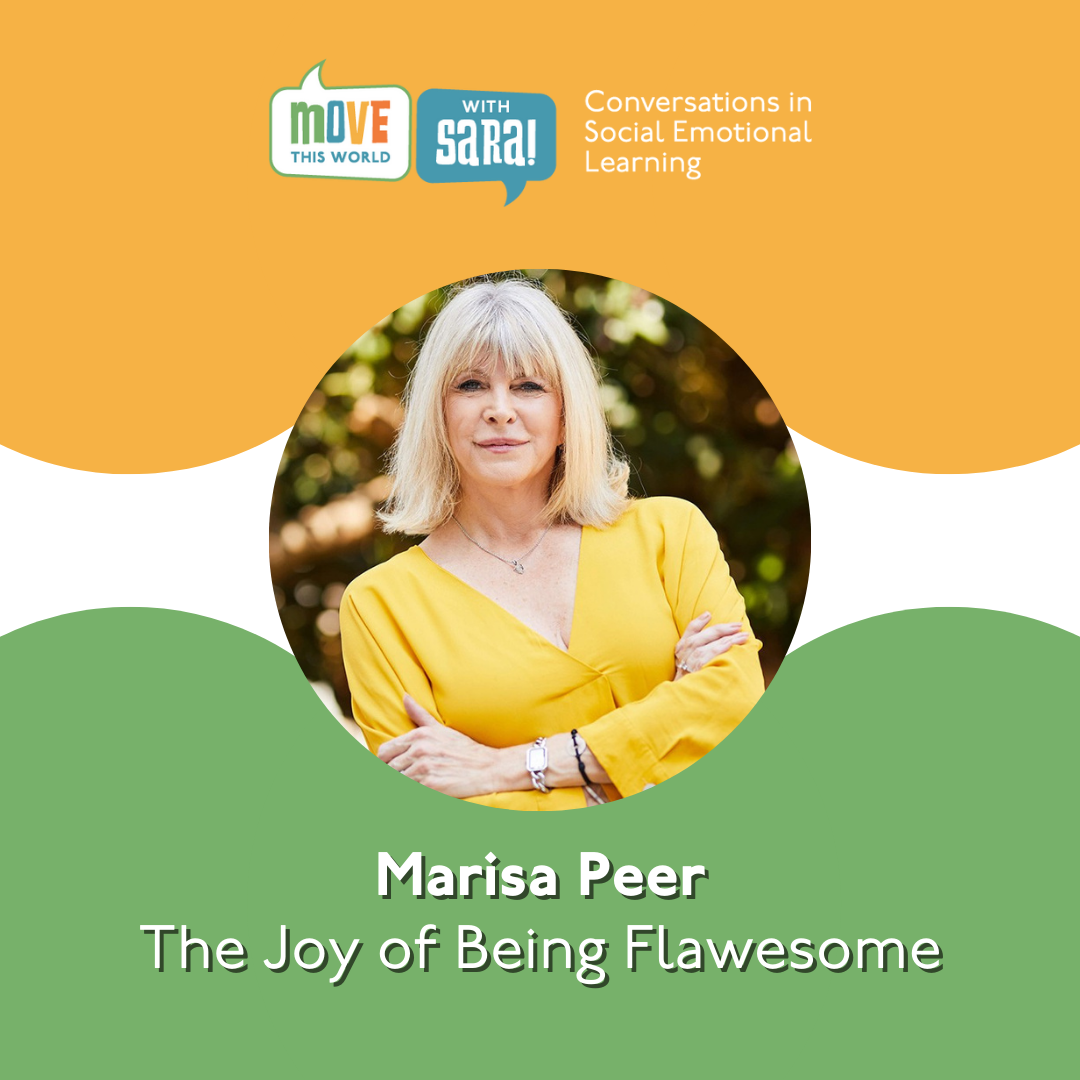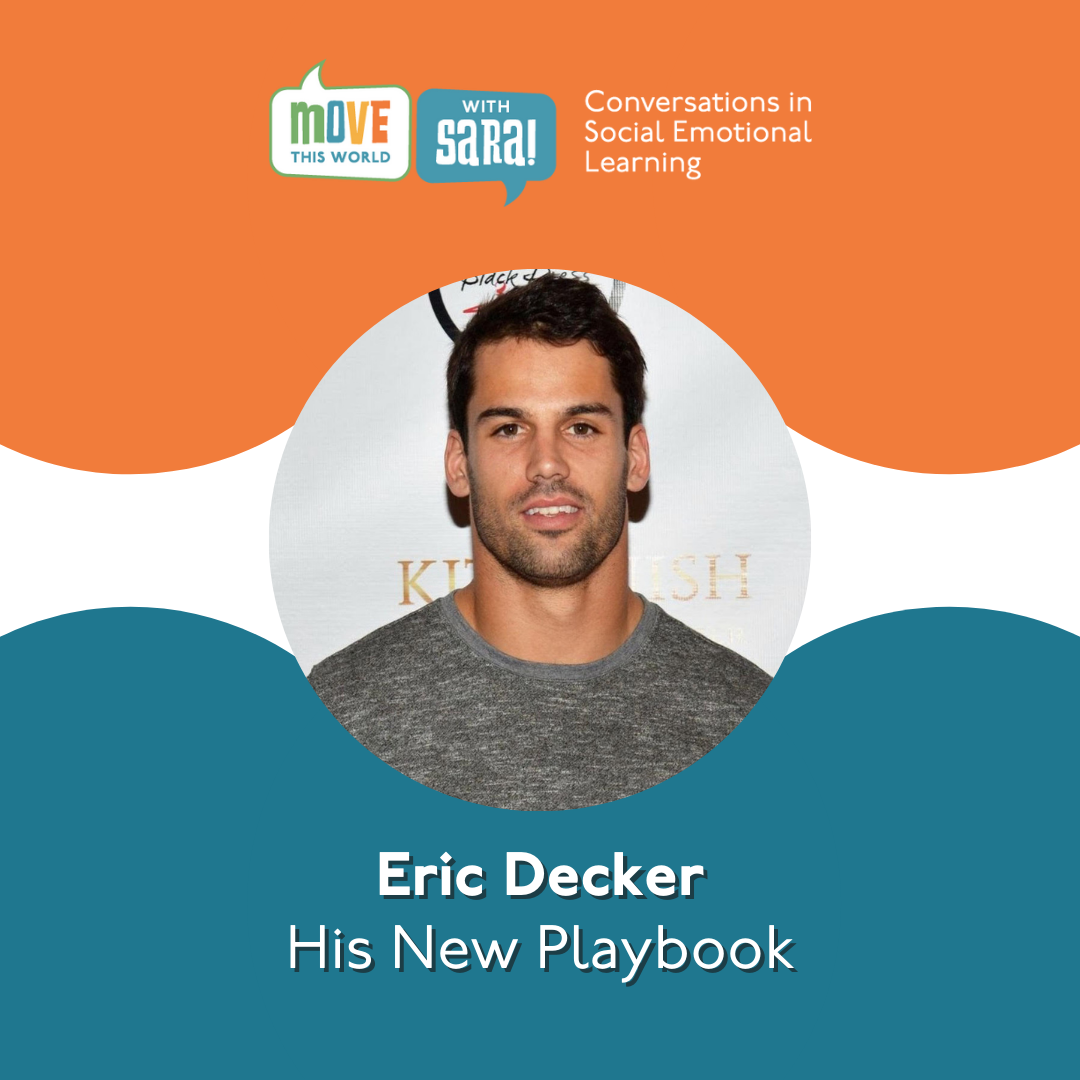How does assessment strengthen SEL instruction? In this episode, Sara speaks with Dr. Clark McKown, Founder & President of xSEL Labs, about the role that assessments play in social emotional learning, prejudice reduction, and equity.
In the Saracast, Sara uses Creative Exercises to ground herself & her guests before each interview. We can bring moments of intention and creative expression to our day in small ways, like at the start or end of meetings, or as we transition from one activity to the next, to feel centered, grounded, and present as we move through our days.
Creative Exercise: Weather Report
Imagine that you are a weather reporter. You are reporting on how you are feeling in this moment, describing your feelings as if you are describing the weather.
“Well I think the field of SEL is engaging in conversations about how it can connect with equity in really constructive ways right now. For example, CASEL just issued a revised set of definitions of the 5 competencies. If you go to the website and take a look at how they’re defining the competencies, they’ve integrated a refined focus on equity into those competency definitions. For example, self awareness includes self awareness of your own prejudices and stereotypes. You can’t change them if you don’t acknowledge that you might have them and work to do something about it.” -Dr. Clark McKown
Click To Tweet this Highlight
Resources Mentioned
Assessing Students’ Social and Emotional Learning: A Guide to Meaningful Measurement by Dr. Clark McKown
Visible Learning by John Hattie
“PBIS from the very beginning, because of their orientation in behaviorism, integrated assessment into the practice of PBIS. So if you’re a PBIS school, you measure implementation, and you have data teams that sit down and talk about are we doing what we said we were going to do, and you measure outcomes, and you sit down with your data teams and see are we having the impact we want to have? It’s part of the culture and origin story of PBIS. SEL on the other hand just didn’t have that origin story. I think people wanted to say yeah assessment is fine, but let’s help kids. And that’s the right impulse, but I think now we say, well now that it’s going to scale, we need ways of knowing whether it’s going well and whether it’s having the impact we want, and so assessment is kind of catching up to intervention at this point.” -Dr. Clark McKown
Click To Tweet this Highlight
About Dr. Clark McKown
Clark McKown, Ph.D. is an Associate Professor of Behavioral Sciences at Rush University Medical Center (RUMC) and past Executive Director of the Rush NeuroBehavioral Center, a nationally recognized children’s center supporting children’s social and emotional development through clinical service, educational outreach, and research. He is also founder and President of xSEL Labs, whose mission is to improve student outcomes by helping educators understand children’s social-emotional strengths and needs. McKown is a nationally recognized leader in the field of SEL assessment who is regularly sought for his expertise. He was a member of the steering committee of The Practical Social and Emotional Competence Assessment Work Group, a collaborative of leaders in research and practice working to advance the field of SEL assessment. McKown has been Principal Investigator on several federal and foundation grants whose purpose was to design, develop, validate, and scale social and emotional assessment systems. Findings from McKown’s research have been published in top-tier peer-reviewed scientific journals including Psychological Assessment, Journal of School Psychology, and Child Development. He is lead author of a recently published report on the state of the field of SEL assessment and the book, “Assessing Student Social and Emotional Learning: From Planning Through Action” (W.W. Norton & Company). McKown received his B.A. in psychology from Yale and his Ph.D. in psychology from U.C. Berkeley.
“I think this integration of an equity focus with the SEL competencies is going to be a real boon to education and to society. The other thing, though, that I would say is that there have been effective strategies developed both to reduce prejudice and to increase academic equity that are old. They’ve been around since at least the 80s and 90s, and the question I have – and I blogged about this recently – why is it that those strategies, like true cooperative learning, actually makes kids who are different from one another in any way like each other better in general. And, when those cooperative learning groups are heterogeneous in terms of achievement, it tends to lift all boats. So kids who are lower achieving rise and kids who are higher achieving rise. That’s not an SEL question necessarily, but it’s a question for the field and the world. If we know that these are things that promote equity, why aren’t we shouting it from the rooftops?” -Dr. Clark McKown
Click to Tweet this highlight

